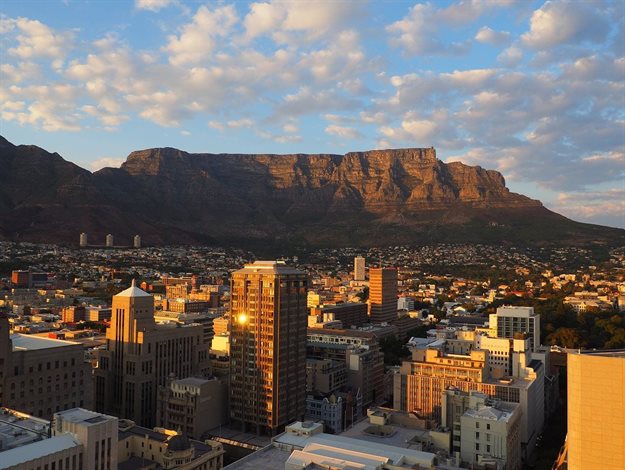New property developments in the Cape Town central city worth in excess of R950m have been reported this year in spite of a tight economy and huge economic pressure.
This is the key finding since the release in July of the latest edition of The State of Cape Town Central City Report 2018 – A Year in Review (SCCR) by the Cape Town Central City Improvement District (CCID). The report reflects on the economic climate in the CBD across the previous year.
When it was launched it was revealed that the value of property in the central city had soared by nearly 40%, from R30.628bn in 2016/2017 to R42.860bn in 2018/2019, with a total of 39 new developments worth in excess of R13.5bn either recently completed, under construction or in the pipeline.
Now a further six new developments worth in excess of R968m have been reported in 2019 thus far, says SCCR researcher and economic research analyst Sandra Gordon.
New developments
Three of the six new developments are hotels which have already opened – two five-star luxury hotels namely Gorgeous George and Labotessa – and one three-star hotel, the Signature Lux hotel on the Foreshore. These three hotels add a further 196 new rooms to the city’s hotel pool.
Two further new developments are residential – The Duke and Fleetway House – while Foreshore Place will be a mixed-use development with both commercial and residential space. These three developments are scheduled to add an additional 416 residential units to the central city.
Adding these new developments (and including an estimated R130m for City Park which was not included in the SCCR 2018 estimate) to the estimate of recently completed, under construction, planned and proposed developments increases the total to R14,679m.
Data in the seventh edition of the annual report shows sustained confidence in the development potential of the central city, says CCID board chairman Rob Kane.
Among other key findings in the report are that:
- While vacancy rates for commercial office space rose in the last year, with 30,000m2 of new office space coming on to the market over an 18 month period (14,000m² in 2018), Cape Town continues to have the lowest office vacancy rates of South Africa’s five largest metropolitan centres;
- The retail sector serving workers and residents in the downtown area has remained stable, despite lagging economic conditions, with a steady 93% retail occupancy rate, and an increase of more than a third in the number of restaurants in the CBD, from 114 in 2017 to 153; and
- Cape Town has affirmed its status as the leading digital city in Africa, recognised as a hub for technology development and innovation, and providing over 40,000 jobs in the sector, significantly higher than other tech hubs such as Johannesburg (20,000), Lagos (9,000) and Nairobi (7,000).
The most significant indicator of investor confidence in the Cape Town central city is the growth in property value of more than R12.2bn from 2016/17 to R42.860bn.
Kane notes that while the overall value of properties is likely to change with the adjudication of objections in the City of Cape Town’s current round of updating the General Valuation roll, “We are heartened by the increase in gross valuation for the Cape Town Central Business District (CBD). Combined with the developments underway or proposed, the overall picture shows confidence in the development potential in the central city.”
Commercial sector vacancies
In its assessment of the commercial sector, the report notes that vacancy rates rose during 2017 and 2018, primarily as a result of 30,000m2 of new office space coming on to the market. New developments include 16,000m2 at KPMG’s The Halyard, 6,500 m2 at the ENS building and 3,000m2 in the upgrade of the Maserati building, among others. Nevertheless, Cape Town continues to have the lowest office vacancy rates of the five largest metropolitan municipalities, despite a 50 basis-point increase during the last quarter of 2018.
Kane comments: “In terms of office rentals, rates have remained largely stable. Stronger drivers are required to support future demand and to improve the vacancy rate and asking rental growth. These drivers include growth in capital investment, employment and renewed business optimism in a changing political landscape.”
The report suggests a revealing trend in terms of home ownership. Nearly 60% of city dwellers own their properties, while nearly 25% are tenants in rental properties. The remaining 15% own their property and rent to tenants. Former commercial buildings in the CBD converted to residential buildings include Triangle House, and the former Nedbank building on the Foreshore, recently launched as The Onyx.
Other features in the report include:
- Breakdowns of all the business sectors in the central city, including focus on specific sectors such as business process outsourcing, arts, retail and co-working sector,
- An in-depth look at the conferencing, eventing and visitor economy of the central city,
- A property investment map detailing the 39 locations of current construction sites as well as those of planned/proposed projects,
- A review of the effects of the 2018 drought and the implications for the overall resilience of Cape Town, and
- Highlights from the CCID annual online residential and retail surveys.









































